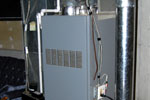Frequently Asked Questions (FAQs)
Click on the links below to view the FAQ answers. Have a question? Submit it HERE.When will I need to replace my furnace and air conditioner?
When your comfort system ages there comes a point when repair is no longer an effective investment. Most systems that receive proper preventative maintenance will function well for 10, 15 even 20 years. Most home systems are expected to last for that length of time. That is not to say that the system will continue to be fully efficient throughout its lifespan. If recurring maintenance issues or a lack of efficiency begins to happen it may be time to consider replacing the system.

Why should I replace the whole system if only part of the system stops working?
One of the most important reasons to replace the entire system is that most warranties will be voided if only a portion of the entire unit is replaced. In addition to that, mismatched components will decrease the efficiency of the unit and can shorten the operating lifespan of the system.
If I need to replace my system should I get a larger one?
Your system needs to be sized properly for the job. If it is too big the overall performance will suffer. In the summer, the air conditioner will start a stop in what is known as a short run cycle. This causes more wear and can increase energy costs. In the cooler months a heating system that it too large can cause wide swings in temperature because the house heats up quickly but then cools quickly as well.
Should I be concerned about Air Quality?
The air inside your home is recycled through your system and because many newer homes are insulated and tightly sealed. While this is good for the energy efficiency of the home it means that little fresh air is introduced which can cause the pollutants in the air to become concentrated and can be as much as 5 times more polluted that the outside air. This can pose a threat to general health, respiratory impairment and allergies.

Can my system affect the air quality of my home?
Yes, it can. Improper filters or infrequent filter changes can add to the particulate matter in the air. Mold can also form in some components of the system and be dispersed throughout your home. High efficiency air filters, keeping the ductwork clean and using UV lights can kill mold and bacteria and improve air quality. An air quality audit from McGinnis Heating and Cooling can identify any problems that need to be improved to increase the air quality in your home.
I have some rooms that are hard to heat or cool, what can I do?
Because every home and system is different the best course of action is to do an analysis or the particular situation. McGinnis Heating and Cooling can evaluate the factors involved to determine the cause of the problem such as leaks in the airducts, sunlight causing hotspots or a mismatched system. Call us and we would be happy to arrange and analysis of your home.

At what temperature should I set my thermostat?
Setting your thermostat at the highest or lowest possible settings to maintain your comfort level can maximize your energy usage. In the summer this setting is usually somewhere between 75 and 80 degrees while in colder months it would fall between 68 and 72 degrees. These are averages however and will vary according to what you consider comfortable. Smart thermostats such as the ecobee available from McGinnis can help with maintaining your chosen comfort level and in many cases can work in conjunction with your system to provide troubleshooting information as well as temperature control. When considering the impact of a thermostat setting on energy costs the rule of thumb is a 1 percent change in energy cost for every 1 degree of temperature change. This means that changing your thermostat setting from 70 down to 68 in winter or up from 75 to 77 can return an energy savings with little or no perceived change in your comfort level.